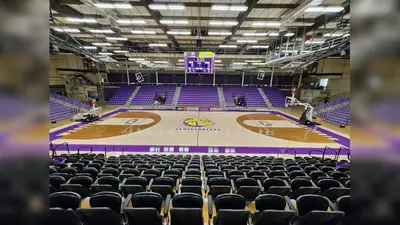Rep. Randy Frese (R-Paloma) said he appreciates the interest and passion he has seen during legislative hearings on the Legionnaire's disease outbreak at the Illinois Veterans Home in Quincy.
“Thank you to all the members of the committee who have taken the time,” Frese said at a joint Illinois House-Senate Veterans' Affairs Committee hearing on Tuesday over the 13 death related to the disease at the facility since 2015.
The meeting comes on the heels of Gov. Bruce Rauner checking into the facility Jan. 3 and his meeting with U.S. Sen. Dick Durbin (D-IL) on Jan. 5 to discuss future safety measures at the 200-acre site.
At Tuesday's hearing, Frese had a few questions for panel witnesses, beginning with what in fact constitutes an outbreak and when the Centers for Disease Control and Prevention (CDC) informed and requested to provide Epi-Aid, the process of public health administrators seeking short-term epidemiologic aid for an vital public health issue.
“There is not a requirement Rep. Frese, it is when we feel we are ready to receive onsite assistance,” Nirav Shah, director of the Illinois Department of Public Health (IDPH), said, adding immediately after Aug. 21, 2015, when the first two cases of Legionella death were confirmed, the CDC was contacted. “From that point on, our various teams from clinical, epidemiology and environmental health had multiple phone calls per day with their colleagues and counterparts at the CDC, multiple, multiple times per day.”
Shah said the IDPH did not make a move without clearing it with the CDC first, eventually requesting Epi-Aid on site.
Frese then asked CDC Associate Director for Epidemiological Science Sam Posner about Epi-Aid follow-up that occurred in Quincy after the outbreak.
“This is an issue especially with Legionella, because of the persistence of Legionella that we have worked with at a number of sites over multiple years investigating cases,” Posner said.
Frese then questioned if IDPH does not require water testing, only mandating a water management plan policy be in place, why if fact does Illinois Department of Veterans' Affairs Director Erica Jeffries continue to test above and beyond the requirements.
“It is increased surveillance,” Jeffries said. “Now that we have found cases at our home, it's really our responsibility to monitor the water flow and water quality and in doing so, we continue to find cases.”
Frese said after “constantly reading” on the matter, he found Quincy had 92 cases of pneumonia from January through November of 2017, five or six which were cause by Legionella.
“Is there facts on the other 86 diagnosis of pneumonia and what they were caused by,” Frese asked.
“That is a great questions Rep. Frese, and we have looked at these data,” Shah said. “Most cases of pneumonia, we don’t ever really achieve or know what the bacteria or virus that caused it was.”
But that is not the case at Quincy, he said.
“The veterans home does not end there,” Shah said. “They don’t stop unless they determine whether or not it is Legionella. As you have heard Director Jeffries mention, and I concur, because they are much more aggressive about looking for it more than other health care facilities, it is inevitable they will find it.”
Shah said compared to other health care facilities with a similar population of elderly residents, Quincy pneumonia rates are in-line or below what is expected.
Frese thanked the witnesses for their testimony, assuring them lawmakers will continue to care.
“We are getting it under control, and we are going to continue the efforts wholeheartedly,” Frese said.






 Alerts Sign-up
Alerts Sign-up